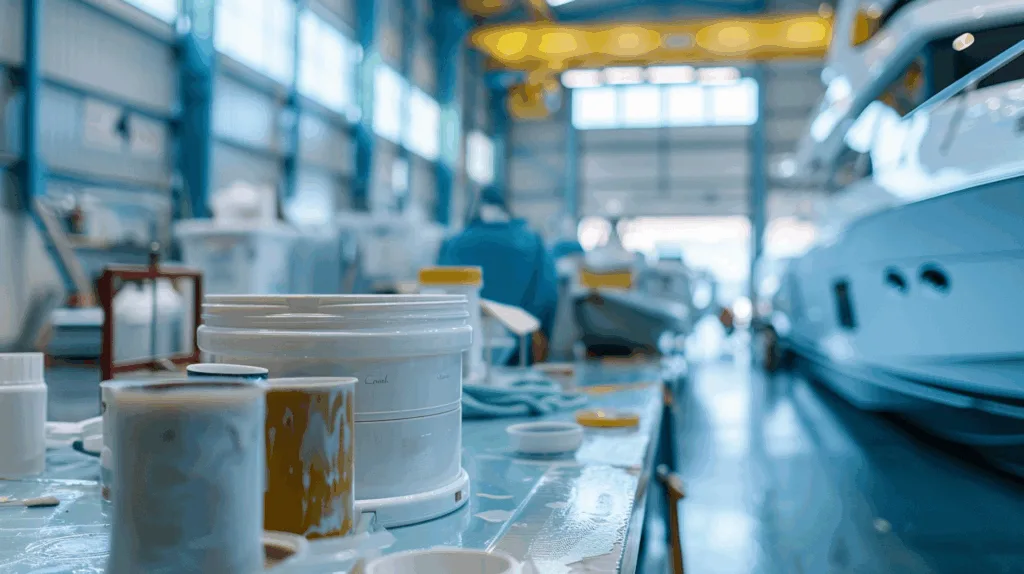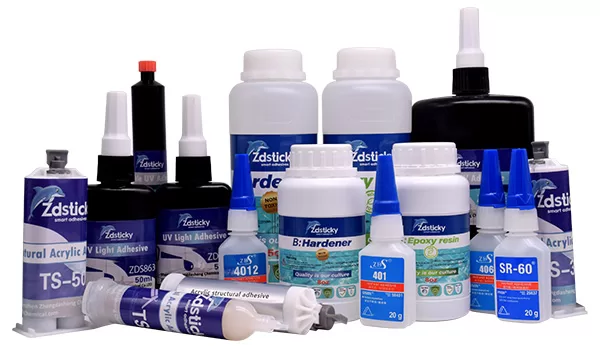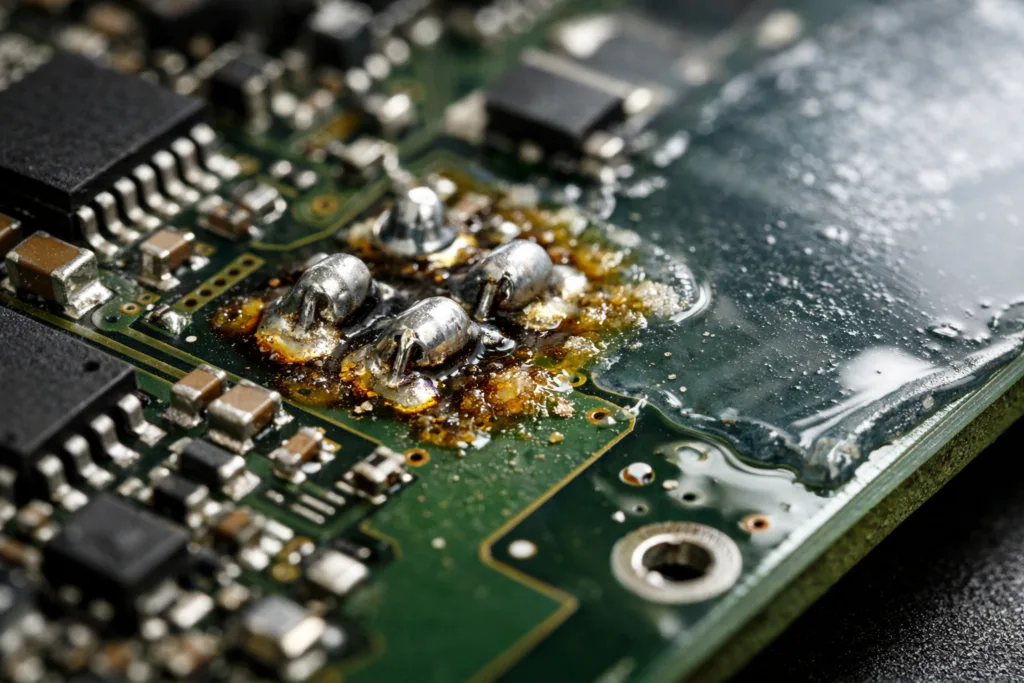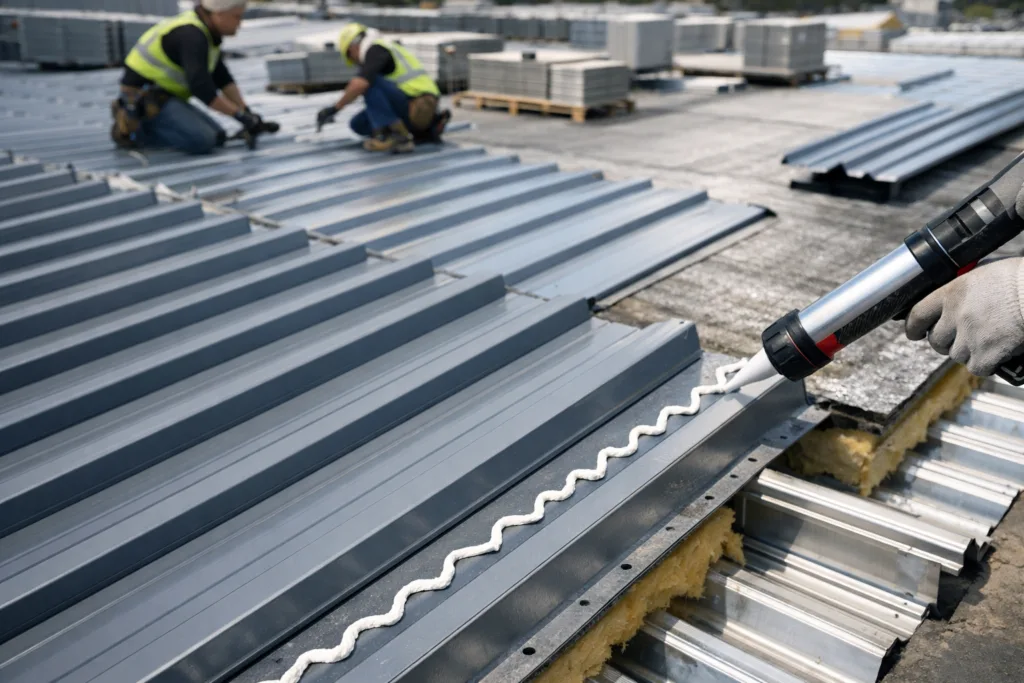Why Marine Adhesives Matter: How to Choose Marine Adhesive
Marine adhesives are critical for ensuring that joints, surfaces, and structural components of boats and ships remain secure in demanding environments. Unlike standard adhesives, marine adhesives are engineered for water resistance, mechanical strength, flexibility, and UV durability.
Key Factors When Choosing a Marine Adhesive
In this article, we will explore how to choose marine adhesive to ensure optimal performance in your marine projects.
Material Compatibility
- Metal: Requires high-strength epoxies or polyurethane
- Fiberglass: Works well with laminating resins or epoxy gels
- Wood: Needs adhesives with flexibility, like polyurethane
- Plastic/Composites: Acrylics or polyurethane for good adhesion
Environmental Resistance
Adhesives must tolerate saltwater immersion, temperature fluctuations, and UV exposure without breaking down.
Structural vs. Non-Structural Applications
Structural bonding (e.g., hulls, bulkheads) requires epoxy or polyurethane, while sealing or cosmetic fixes may use silicone or coatings.
Curing Time & Application Method
Projects with tight schedules may require fast-setting epoxy gels, while large repairs may benefit from longer curing resins.
Main Marine Adhesive Types
Epoxy Adhesives
- Strong, rigid bonding
- Ideal for metal and fiberglass
- Examples: ZDS701C, ZDS1311, ZDS1006
Polyurethane Adhesives
- Flexible, impact-resistant
- Ideal for wood and composite hulls
- Example: ZDS8385AB
Silicone & Sealants
- Excellent sealing, flexibility, and UV resistance
- Non-structural applications
Acrylic Adhesives
- Fast curing
- Best for plastics and composites
Selecting Adhesives by Material
Metals (Aluminum, Steel)
- ZDS701C High-strength epoxy steel weld adhesive: excellent for aluminum or steel repairs, deck hardware, keels, and brackets.
Plastics & Composites
- ZDS8385AB Flexible Polyurethane Structural Adhesive: strong adhesion, resists seawater and vibration.
Fiberglass
- ZDS1311 Epoxy Gel: bonds securely to fiberglass, steel, aluminum, and wood.
- ZDS400AB-5 Laminating Resin: excellent for reinforcing fiberglass cloth and structural repairs.
Wood
- ZDS1311 Epoxy Gel and ZDS8385AB polyurethane adhesive provide flexible, durable bonding for wood exposed to marine environments.
Environmental Challenges in Marine Applications
Saltwater & Corrosion Resistance
Epoxies such as ZDS1006 Epoxy Repair Putty are engineered to withstand constant immersion.
UV & Weathering Resistance
- ZDS721AB Ultra-gloss transparent epoxy coating provides UV stability and a glossy, protective finish.
- ZDS101 Anti-Yellowing Polyurethane Coating offers weather resistance and long-lasting clarity.
Shock & Vibration Resistance
Flexible adhesives like ZDS8385AB perform well under high vibration and stress.
Application-Based Selection
Hull & Structural Repairs
- ZDS1006 Epoxy Repair Putty for waterproof hull repair
- ZDS8385AB Flexible Polyurethane for structural reinforcement
Deck Hardware & Fixtures
- ZDS701C Epoxy Steel Weld Adhesive for keels, thruster brackets, and deck fittings
Coatings & Surface Protection
- ZDS721AB Super Gloss Clear Epoxy Coating for beauty and durability
- ZDS101 Polyurethane Coating for anti-yellowing, UV resistance
Laminating & Reinforcement
- ZDS400AB-5 Laminating Resin for fiberglass reinforcement and high-performance vessel repair
ZDS™ Recommended Marine Adhesives
| Product | Model | Best Use |
| High-strength epoxy steel weld adhesive | ZDS701C | Metal repairs, deck hardware, keels |
| Epoxy Gel | ZDS1311 | Steel, aluminum, fiberglass, wood bonding |
| Epoxy Repair Putty | ZDS1006 | Hull repair, waterproofing |
| Transparent Epoxy Coating | ZDS721AB | Gloss finish, UV & water resistance |
| Laminating Resin | ZDS400AB-5 | Fiberglass laminating & reinforcement |
| Polyurethane Structural Adhesive | ZDS8385AB | Hull reinforcement, flexible structural bonding |
| Anti-Yellowing Polyurethane Coating | ZDS101 | Long-term surface protection, anti-yellowing |
Best Practices for Applying Marine Adhesives
- Clean and dry surfaces before bonding
- Roughen smooth surfaces for better adhesion
- Apply under recommended temperature and humidity conditions
- Allow full curing time for maximum strength
Common Mistakes to Avoid
- Using general-purpose glue instead of marine adhesives
- Ignoring curing times
- Choosing adhesives without considering UV or saltwater exposure
Future Trends in Marine Adhesives
- Development of eco-friendly adhesives with lower VOCs
- Smart adhesives with self-healing properties
- Faster curing technologies to reduce downtime
Conclusion & Final Advice
When deciding how to choose marine adhesive, always evaluate materials, environmental exposure, and application type. ZDS™ offers a complete range of epoxy and polyurethane adhesives tailored to meet the toughest marine challenges.
FAQ: Marine Adhesive Selection
1. Which marine adhesive is best for hull repairs?
ZDS1006 Epoxy Repair Putty and ZDS8385AB Polyurethane Adhesive are excellent for waterproof, durable hull repairs.
2. What adhesive should I use for aluminum and steel bonding?
ZDS701C High-strength Epoxy Steel Weld Adhesive is designed for strong, corrosion-resistant bonding.
3. Can I use marine adhesives for wood bonding?
Yes, ZDS1311 Epoxy Gel and ZDS8385AB Polyurethane are both effective for wood applications.
4. Which adhesive works best for fiberglass repairs?
ZDS1311 Epoxy Gel and ZDS400AB-5 Laminating Resin provide strong adhesion and reinforcement.
5. How do I protect my boat surface from yellowing and UV damage?
Use ZDS721AB Clear Epoxy Coating or ZDS101 Anti-Yellowing Polyurethane Coating.
6. What are the differences between epoxy and polyurethane marine adhesives?
Epoxy offers rigid, high-strength bonding for structural applications, while polyurethane provides flexible, impact-resistant bonding better suited for dynamic marine environments.











